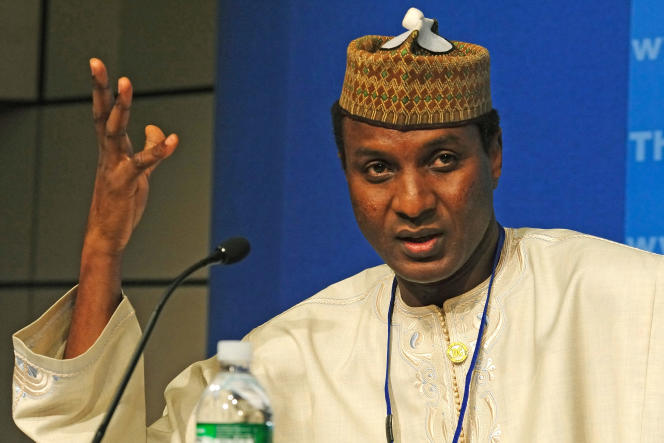Niger has a new prime minister. Twelve days after the coup against President Mohamed Bazoum and while the latter is still being held by the men of the presidential guard, the junta, led by General Abdourahamane Tiani, appointed Lamine Zeine, a 58-year-old economist by training years, head of government on the evening of Monday 7 August. The appointment came as initiatives for a diplomatic resolution to the crisis resumed in Niamey.
A figure known to Nigeriens, the new prime minister is no novice in politics and enjoys a reputation as a competent technocrat. Trained at the National School of Administration in Niamey and a graduate of the Center for Financial, Economic and Banking Studies in Marseille and Paris-1, he began his career at the Ministry of Economy and Finance in 1991, under the government of transition led by Amadou Cheiffou, the day after the national conference for civil peace which established the advent of multiparty democracy in Niger.
Lamine Zeine subsequently became chief of staff to President Mamadou Tandja, a soldier who had taken part in the putsch against President Diori Hamani before becoming the supreme magistrate in 1999. Appointed Minister of Finance in 2003, the economist will remain in position until the overthrow of Mamadou Tandja in February 2010. A putsch which led to elections a year later in which Mahamadou Issoufou, the predecessor of Mohamed Bazoum, was elected president.
Originally from Zinder, the second most populous city in southern Niger, Lamine Zeine is the first Toubou – an ethnic group mainly present in the north and east of the country – to become prime minister. He has a solid address book in West Africa, built up when he worked at the African Development Bank (AfDB) in Côte d’Ivoire and Gabon. He was until now representative of this African financial body in N’Djamena, the capital of Chad.
Appointments of two generals and a colonel
His appointment by the National Council for the Safeguarding of the Homeland (CNSP, the ruling military body) was announced the day after the expiry of the ultimatum set by the Economic Community of West African States (ECOWAS) to the putschists to release President Bazoum and restore him to office. Three other positions were also reassigned on Monday.
Brigadier General Amadou Didilli, until then Secretary General of the Ministry of Defence, was appointed to head the High Authority for the Consolidation of Peace (HACP), a public politico-military body created in 1995 to monitor the implementation of the peace agreements signed that year with Tuareg rebel groups. He replaces General Mahamadou Abou Tarka.
You have 50.07% of this article left to read. The following is for subscribers only.
